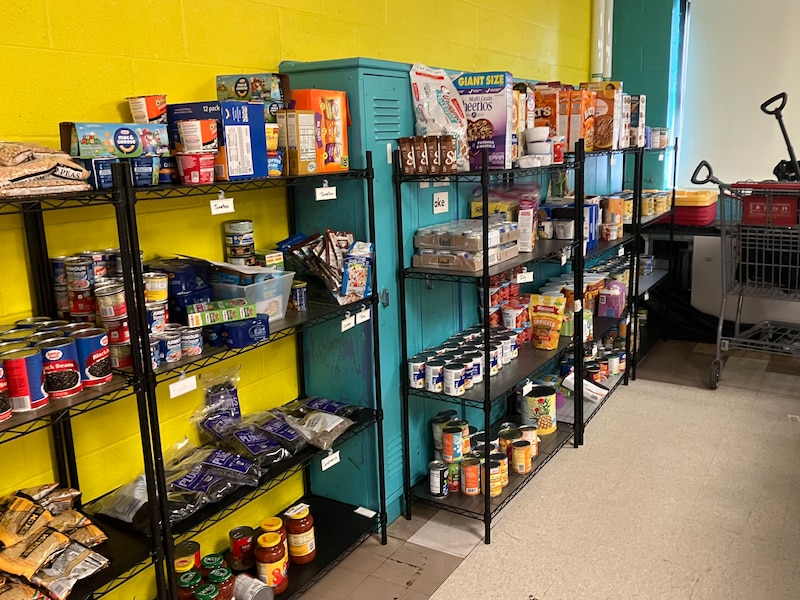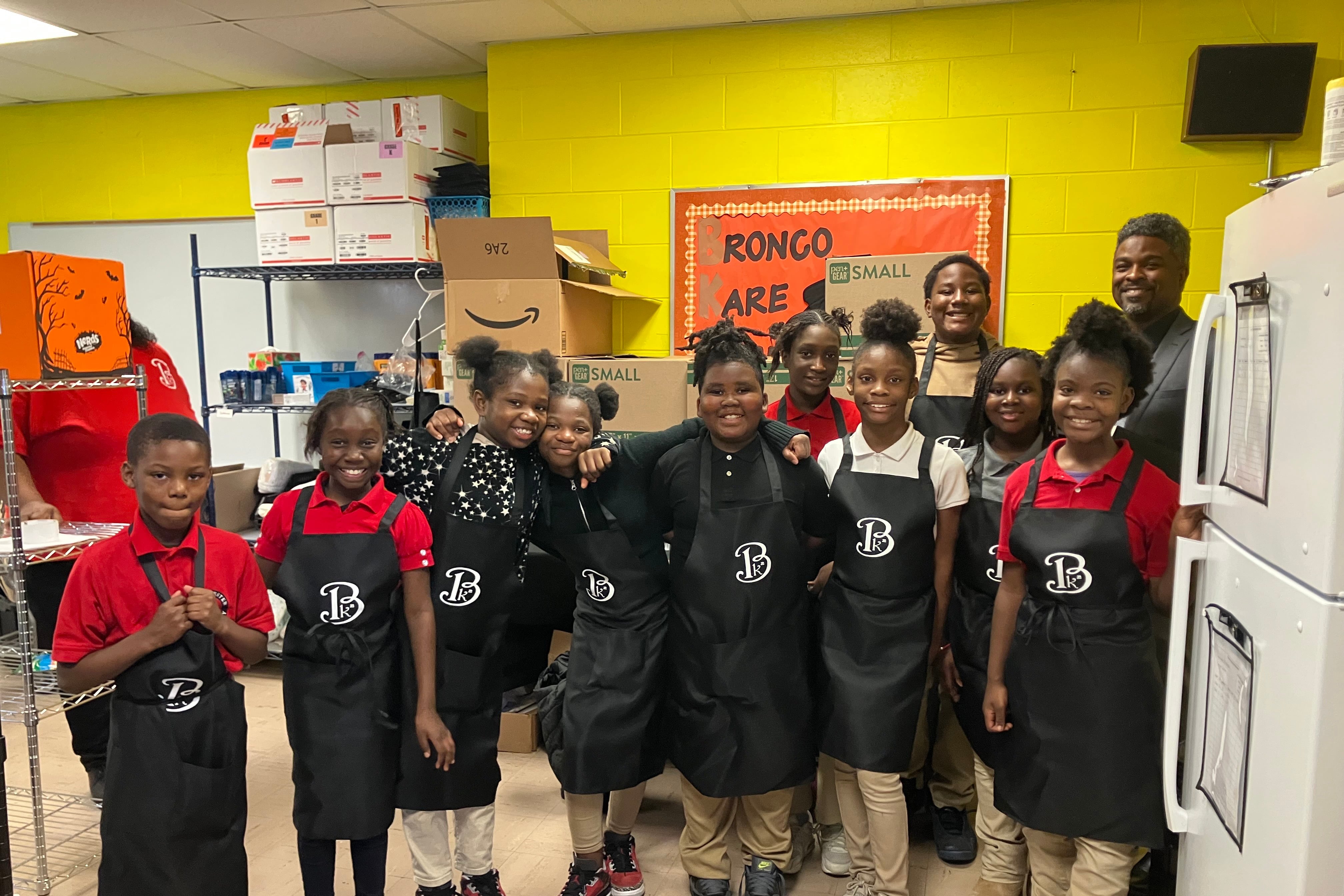Sign up for Chalkbeat Tennessee’s free newsletter to keep up with statewide education policy and Memphis-Shelby County Schools.
Every Wednesday, a group of fourth graders at Winchester Elementary put on black aprons and start packing up cardboard boxes with canned vegetables and mac and cheese.
The young volunteers spend their free periods prepping weekend meal boxes for around 30 Whitehaven families who line up outside the Memphis school building each Friday afternoon. It’s a routine that’s been in place since Winchester opened its food pantry in March.
Denise Wilson, a fourth grade math teacher who runs the pantry, said families typically show up once a month for help. She expects the number of families seeking food to increase in the coming weeks because of delayed and missing SNAP benefits, which are affecting one in 10 Tennesseans as the federal government shutdown drags on.
“Last month, we started seeing more families every two weeks,” Wilson said. “And I do expect we may end up seeing families every week.”
Each family at the Winchester food pantry gets frozen meat and refrigerated staples along with pantry items. They can also ask for hygiene products like toilet paper and diapers.
“A lot of our students and families live in hotels, which makes their situation a little different than most families because they don’t have freezers, refrigerators, or stoves,” Wilson said. “They’re cooking with microwaves. So we even do special boxes just for them.”
President Donald Trump said last week that he wouldn’t give out funding for the Supplemental Nutrition Assistance Program, known as SNAP, until the weeks-long government shutdown ends. But a federal court ruled that the Trump administration must use emergency funds to pay at least partial benefits to SNAP recipients in November.
It’s unclear when those funds will be distributed, and Tennessee Gov. Bill Lee said Tuesday it could be a “very complicated” process for the state to accept and distribute partial payments.
Under political pressure from Democrats to help alleviate the shutdown funding gaps, Lee announced this week that Tennessee would give $5 million to food banks after previously declining to dip into the state’s robust rainy day fund.
Lee said the money would be distributed proportionally in the state based on SNAP recipient locations. Over 150,000 Shelby County residents rely on the monthly food assistance, and around 40% of those affected are estimated to be children.
School nutrition programs like free and reduced price breakfasts and lunches have not yet been affected, Tennessee officials say. But that could change if the shutdown, already the longest in the nation’s history, continues beyond November.

The governor expressed frustration with the continuing shutdown on Tuesday, noting Tennesseans have paid federal taxes that fund programs like SNAP.
“This whole federal shutdown problem has created a tremendous hardship for a lot of Tennesseans,” Lee said. “It’s disappointing that it’s happened. It’s frustrating to people, including myself, and it needs to come to an end. The government needs to open up.”
Wilson said she’s started giving out bags of snacks and pantry items to any middle or high schoolers who stop by on Fridays, “no questions asked.”
“We know if one child is struggling in the house, all children are struggling in the house,” she said. “And we all understand in this building that you can’t teach a hungry child.”
The pantry hasn’t received any additional money or donations during the government shutdown, Wilson said. But the school received enough donations in the past few months to fully stock a classroom and two freezers as backup for the expected rush.
“We’re just hoping that the shutdown doesn’t last too much longer,” she said.
Bri Hatch covers Memphis-Shelby County Schools for Chalkbeat Tennessee. Reach Bri at bhatch@chalkbeat.org.







